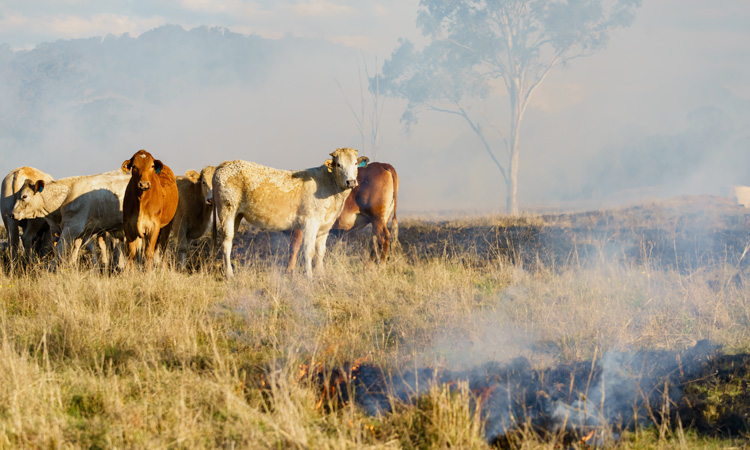Food safety and shortage concerns rise as Australian bushfires continue
- Like
- Digg
- Del
- Tumblr
- VKontakte
- Buffer
- Love This
- Odnoklassniki
- Meneame
- Blogger
- Amazon
- Yahoo Mail
- Gmail
- AOL
- Newsvine
- HackerNews
- Evernote
- MySpace
- Mail.ru
- Viadeo
- Line
- Comments
- Yummly
- SMS
- Viber
- Telegram
- Subscribe
- Skype
- Facebook Messenger
- Kakao
- LiveJournal
- Yammer
- Edgar
- Fintel
- Mix
- Instapaper
- Copy Link
Posted: 6 January 2020 | Sam Mehmet (New Food) | No comments yet
The fires in Australia have claimed human lives and over 500 million animal lives, and has burnt through approximately 12.35 million acres of land, many of which were used for agricultural purposes.


The Australian Food Safety Information Council has issued food safety advice for consumers and industry about bush fires and power outages.
Lydia Buchtmann, Council Communication Director, said that they have been receiving consumer enquiries about what to do with food during this emergency.
“Our thoughts go out to those affected by the fire emergency. One of the dangers of a fire can be toxic fumes from burning materials. Chemicals used to fight the fire can also contain toxic materials. The heat from a fire can cause bacteria in food to multiply,” said Buchtmann.
Here are some key food safety points outlined by the council:
- Discard any food that has been near a fire, including food in cans and jars
- Any raw food, or food in packaging such as cardboard, plastic wrap, screw-topped jars and bottles should also be discarded
- Discard food from a refrigerator as fumes can still get inside
- Wash cooking utensils exposed to fire-fighting chemicals in soapy hot water, then sanitise in chlorine bleach
- When disposing of food, wrap it in newspaper and place in the rubbish bin. A small volume of food may be safely buried
- Where larger quantities have to be disposed of, local government’s environmental health officer should be contacted. Without correct disposal, fly breeding, animal and pest scavenging may result and increase the risk of the spread of infectious diseases.
“If power has gone out your food will remain safe in your refrigerator for two hours. If it has been more than four hours, throw the food out. Do not open the fridge door during the power cut, unless necessary. The best option is to keep the refrigerated foods as cold as possible by not opening the door unless necessary to remove food to eat or check the temperature after two hours.”
There are also fears that the fires will lead to food shortages as food producers struggle to transport food across the country, and agricultural land is lost.
Related topics
Food Safety, Food Security, Health & Nutrition, Supply chain









